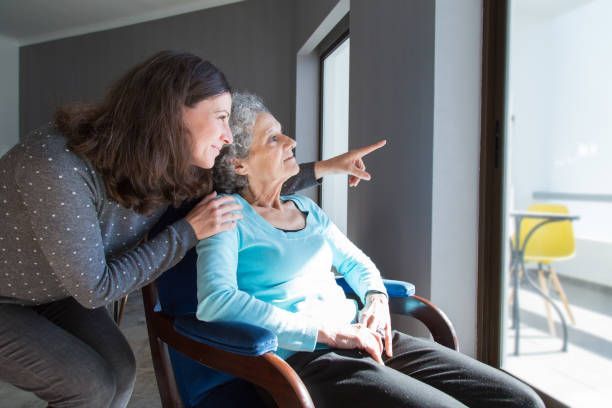How to Take Care of a Bed Bound Patient
How To Take Care Of A Bed Bound Patient
The value of having a home care agency experienced in bed bound patient in-home care cannot be overstated, as it brings specialized expertise, compassionate support, and a holistic approach to managing the complex needs of these patients. Experienced home care agencies employ certified home health aides who are trained in preventing and managing complications such as pressure ulcers, infections, and muscle atrophy through meticulous care routines, including regular repositioning, maintaining hygiene, and conducting range-of-motion exercises. These agencies also offer critical emotional and psychological support, recognizing the profound impact of isolation and immobility on a patient's mental health. By facilitating regular social interactions, mental stimulation, and access to counseling, they help alleviate feelings of depression and anxiety. Furthermore, such agencies ensure seamless coordination with healthcare professionals, ensuring that all medical, nutritional, and therapeutic needs are consistently met. They also provide family members with much-needed respite and training, ensuring that they are well-equipped to contribute to the care process. Ultimately, the comprehensive, compassionate, and expert care provided by a specialized home care agency significantly enhances the quality of life for bed bound patients, ensuring their comfort, dignity, and overall well-being.

Are You Searching For Home Care Near Me For A Loved One Who Is Bed Bound?
Caring for a bed bound patient requires compassion, dedication, and specialized knowledge. At 7 Day Home Care, our team of certified home health aides, supervised by registered nursing staff, are trained and experienced in providing comprehensive in-home care for bed bound patients. 7 Day Home Care is licensed by the New York State Department of Health to provide in-home care services in Manhattan, Queens, Brooklyn, Nassau County, and Suffolk County, New York. In this detailed guide, we will walk you through essential aspects of caring for a bed bound patient, ensuring their comfort, dignity, and well-being.
Understanding Bed Bound Patient Home Care
A bed bound patient is an individual who is unable to leave their bed due to severe illness, injury, or disability, necessitating comprehensive and continuous care to manage the multifaceted challenges associated with their immobility. This state can result from various conditions, including advanced age, chronic ailments such as heart disease or severe arthritis, significant injuries, or neurological disorders like advanced multiple sclerosis or stroke. Being confined to bed exposes the patient to a high risk of complications such as pressure ulcers, which develop from prolonged pressure on the skin and underlying tissues, and can quickly lead to serious infections if not managed properly through regular repositioning and the use of specialized mattresses. Additionally, the lack of movement can result in respiratory complications like pneumonia from fluid buildup in the lungs, and urinary tract infections often associated with prolonged catheter use, necessitating stringent hygiene practices and adequate hydration. Muscle atrophy and joint contractures also pose significant threats due to the weakening of muscles and stiffening of joints, which can be mitigated through regular passive and active range-of-motion exercises. Beyond addressing physical health concerns, it is crucial to provide emotional support to bed bound patients, as they often experience feelings of isolation, depression, and anxiety. This can be alleviated through regular social interactions, mental stimulation, and access to counseling services. Therefore, the care of a bed bound patient requires a holistic approach that prioritizes their physical well-being, emotional support, and overall quality of life, ensuring that all aspects of their condition are meticulously managed.
Creating a Comfortable and Safe Environment for a Bed Bound Patient
The environment plays a crucial role in the well-being of a bed bound patient. Here are key considerations:
- Bed and Bedding:
- Use a hospital bed with adjustable positions to facilitate care and comfort.
- Ensure the mattress is designed to prevent pressure sores, such as an air-filled or foam mattress.
- Keep bedding clean, dry, and wrinkle-free to avoid skin irritation.
- Room Setup:
- Arrange the room to allow easy access for caregivers and medical equipment.
- Maintain a comfortable temperature and good ventilation.
- Personalize the space with the patient's favorite items to create a homely atmosphere.
- Safety Measures:
- Install bed rails to prevent falls.
- Ensure all necessary items (call bell, water, medications) are within the patient's reach.
- Use non-slip mats and remove clutter to prevent accidents.
Personal Hygiene and Skin Care for Bed Bound Patients
Maintaining personal hygiene and skin integrity is vital for bed bound patients:
- Bathing:
- Bed baths should be conducted regularly using warm water and mild soap.
- Pay special attention to skin folds and areas prone to moisture buildup.
- Oral Care:
- Brush the patient’s teeth at least twice daily and provide mouth rinses to prevent infections.
- For patients unable to perform oral care, use specialized oral hygiene tools.
- Skin Care:
- Inspect the skin daily for signs of pressure sores, redness, or irritation.
- Apply moisturizers to prevent dryness and use barrier creams to protect sensitive areas.
- Reposition the patient every 2 hours to alleviate pressure on vulnerable areas.
Nutritional Needs for Bed Bound Patients
Proper nutrition is essential for the health and recovery of bed bound patients:
- Dietary Plan:
- Consult with a dietitian to create a balanced meal plan tailored to the patient's needs.
- Ensure meals are rich in protein, vitamins, and minerals to support healing and prevent muscle wasting.
- Feeding Techniques:
- If the patient can eat orally, ensure they are positioned upright during meals to prevent aspiration.
- For patients with feeding tubes, follow strict hygiene protocols to avoid infections.
- Hydration:
- Encourage regular fluid intake to prevent dehydration.
- Monitor for signs of dehydration, such as dry mouth and reduced urine output.
Medication Management for Bed Bound Patients
Effective medication management is crucial for the treatment and comfort of bed bound patients:
- Organizing Medications:
- Use a pill organizer and maintain a detailed medication schedule.
- Keep medications in a secure, easily accessible location.
- Administration:
- Follow the prescribed dosages and timings strictly.
- Monitor the patient for any adverse reactions or side effects.
- Documentation:
- Maintain accurate records of all medications administered, including dosages and times.
- Report any changes in the patient’s condition to the supervising nurse or doctor immediately.
Physical and Occupational Therapy for Bed Bound Patients
Regular physical and occupational therapy can significantly enhance the quality of life for bed bound patients:
- Range of Motion Exercises:
- Perform gentle, passive range of motion exercises to maintain joint flexibility and prevent stiffness.
- Encourage any movements the patient can do independently.
- Positioning:
- Use pillows and supports to maintain proper alignment and prevent contractures.
- Change the patient’s position regularly to promote circulation and comfort.
- Occupational Therapy:
- Adapt daily activities to the patient's capabilities to maintain a sense of independence.
- Provide tools and devices that assist with mobility and self-care tasks.
Emotional and Psychological Support for Bed Bound Patients
Bed bound patients often face emotional and psychological challenges:
- Communication:
- Maintain open, empathetic communication with the patient.
- Encourage them to express their feelings and concerns.
- Mental Stimulation:
- Provide books, puzzles, and other activities to keep the patient mentally engaged.
- Arrange for social interactions with family and friends through visits or virtual means.
- Emotional Support:
- Be attentive and responsive to the patient’s emotional needs.
- Consider professional counseling or support groups if needed.
Managing Common Complications for Bed Bound Patients
Being vigilant about potential complications can prevent serious health issues:
- Pressure Ulcers:
- Regularly inspect the skin and use pressure-relieving devices.
- Ensure proper nutrition and hydration to support skin health.
- Infections:
- Maintain strict hygiene standards for all care activities.
- Monitor for signs of infections such as fever, redness, and swelling.
- Respiratory Issues:
- Position the patient to promote lung expansion and ease breathing.
- Encourage deep breathing exercises and, if necessary, use respiratory aids.
Coordination of Home Care Services Near You for Bed Bound Patients
Effective coordination of care involves multiple healthcare providers:
- Care Team Communication:
- Ensure regular communication between the home health aides, nurses, doctors, and therapists.
- Use a centralized care plan accessible to all team members.
- Family Involvement:
- Involve family members in care routines and provide them with training.
- Keep them informed about the patient’s condition and progress.
- Routine Check-ups:
- Schedule regular visits from healthcare professionals to monitor the patient’s health.
- Update the care plan based on the patient’s evolving needs.
Legal and Ethical Considerations for Bed Bound Patients
Adhering to legal and ethical standards is paramount in patient care:
- Informed Consent:
- Ensure the patient or their legal representative is informed about all aspects of the care plan.
- Obtain consent for any new treatments or procedures.
- Privacy and Dignity:
- Respect the patient’s privacy during all care activities.
- Maintain the patient’s dignity by involving them in decisions about their care.
- Advance Directives:
- Discuss and document the patient’s wishes regarding life-sustaining treatments and end-of-life care.
- Ensure these directives are accessible to all caregivers.
Caring for a bed bound patient is a multifaceted task that requires patience, empathy, and specialized knowledge. At 7 Day Home Care, our certified home health aides and registered nursing staff are committed to providing the highest quality of care to bed bound patients in Manhattan, Queens, Brooklyn, and Long Island, New York. By following the comprehensive guidelines outlined in this article, caregivers can ensure that their patients receive the best possible care, promoting their comfort, health, and well-being. For more information on our services or to discuss your specific needs, please contact 7 Day Home Care at 516-408-0034. We are here to support you and your loved ones every step of the way.
Brian Callahan
7 Day Home Care










